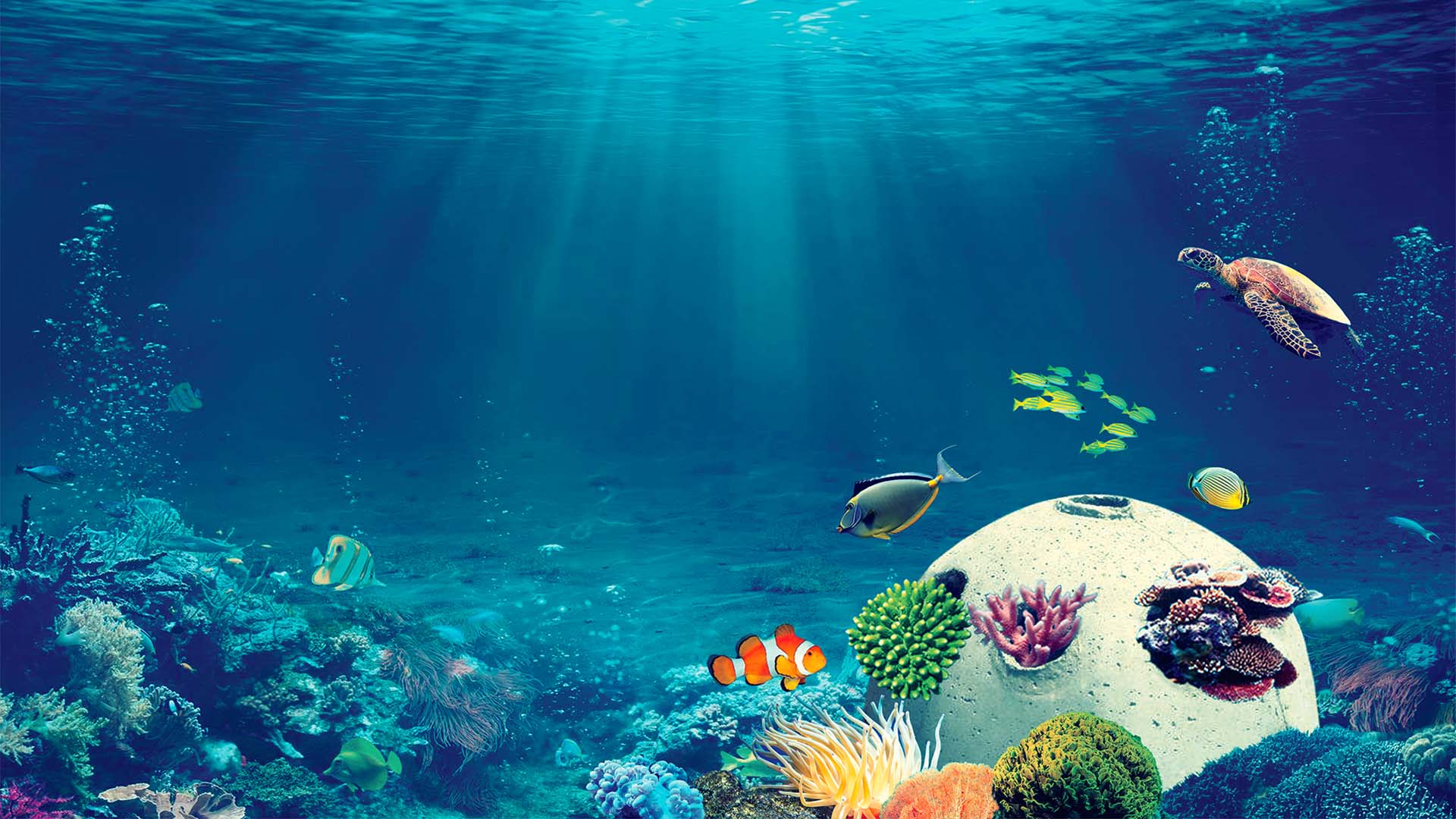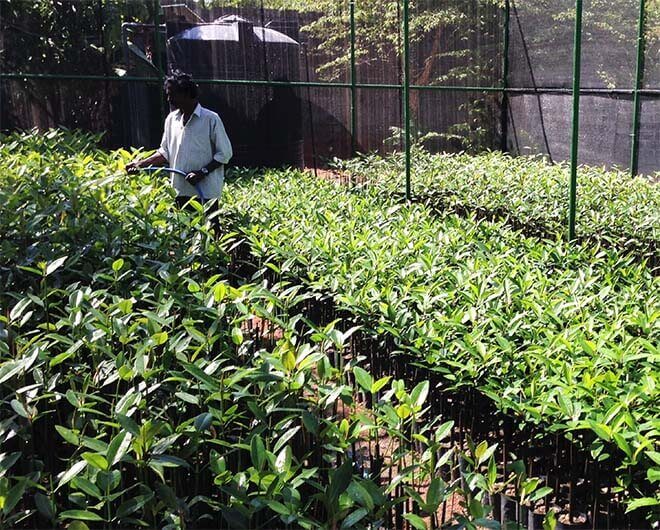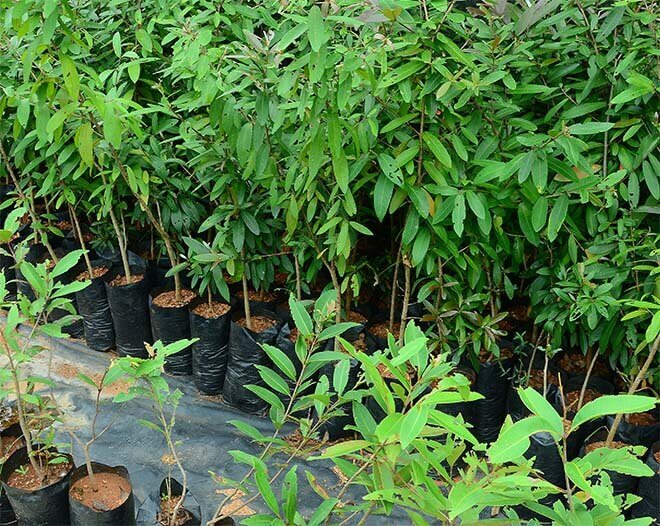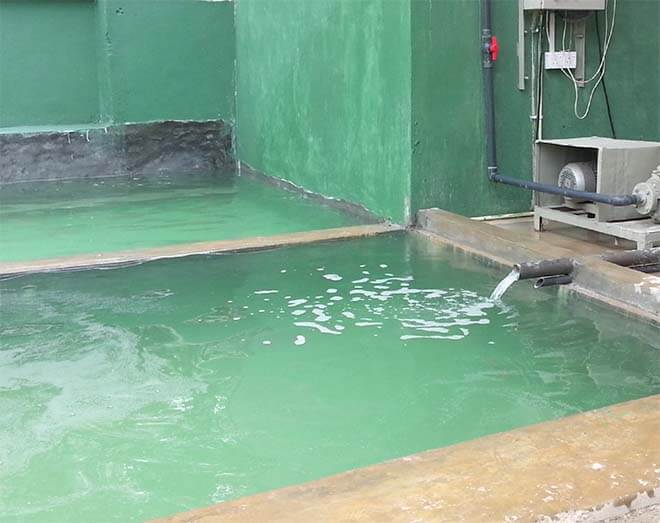Coral reefs are among the most diverse natural ecosystems on earth, as the home to a quarter of all marine species. Not just that, coral reefs provide many important services in the form of coastal protection, food security, recreation and livelihoods, supporting extensive fisheries and tourism industries across many tropical coastal nations.
However, they are increasingly threatened by human activities and many reefs have already been lost or are being degraded at an alarming rate. Coral bleaching and subsequent coral die-offs related to increased temperatures has become a major threat to coral reef ecosystems. Coral bleaching is the process where the corals lose their colour and turn completely white. This is triggered by changes in ocean temperature, light, or level of nutrients that give the algae living on coral colonies a distinct colour.
Understanding the impact and the recovery process of reefs is important in both developing sound management of conservation efforts as well in increasing the resilience of reefs to withstand and recover from such events.
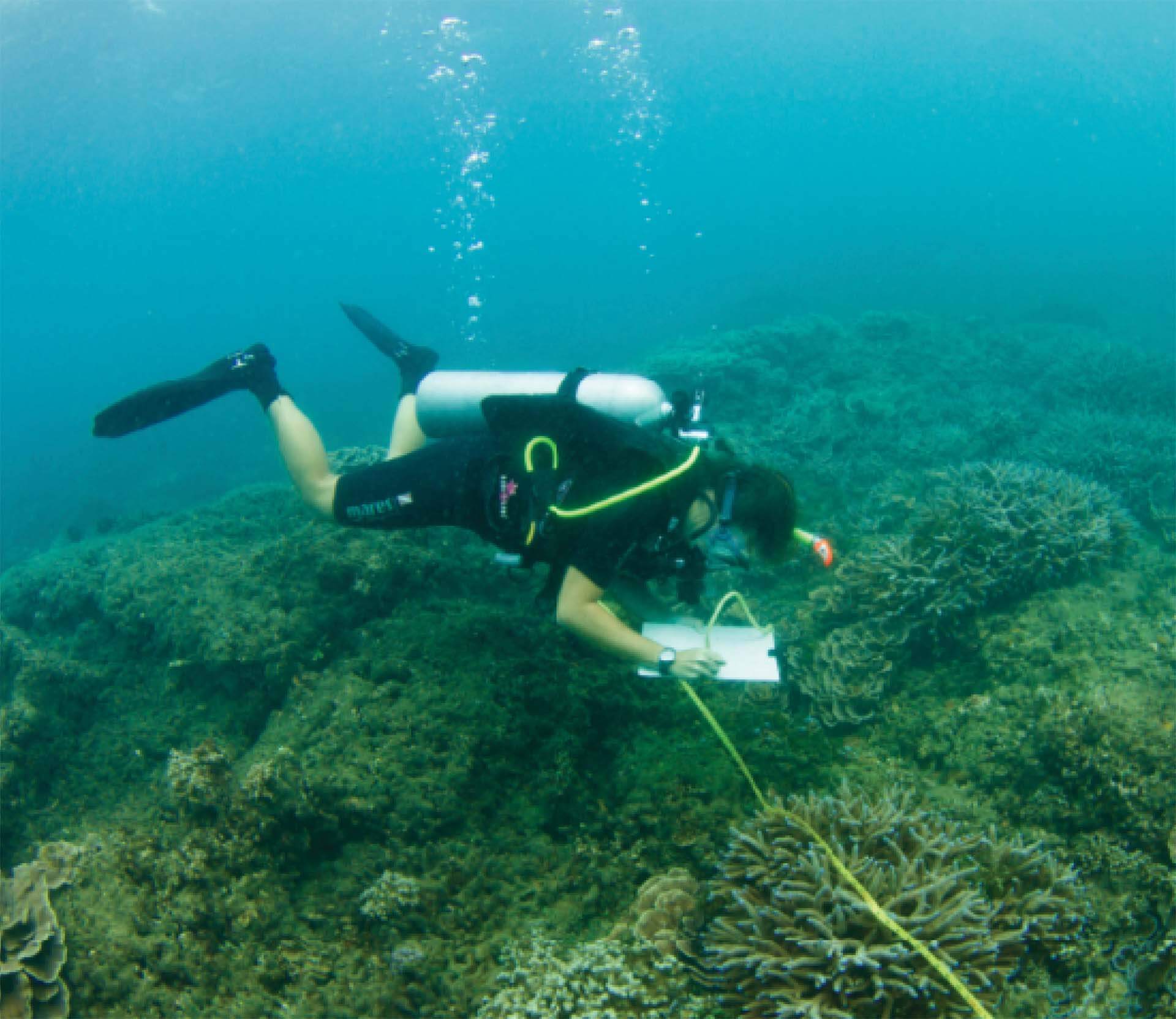
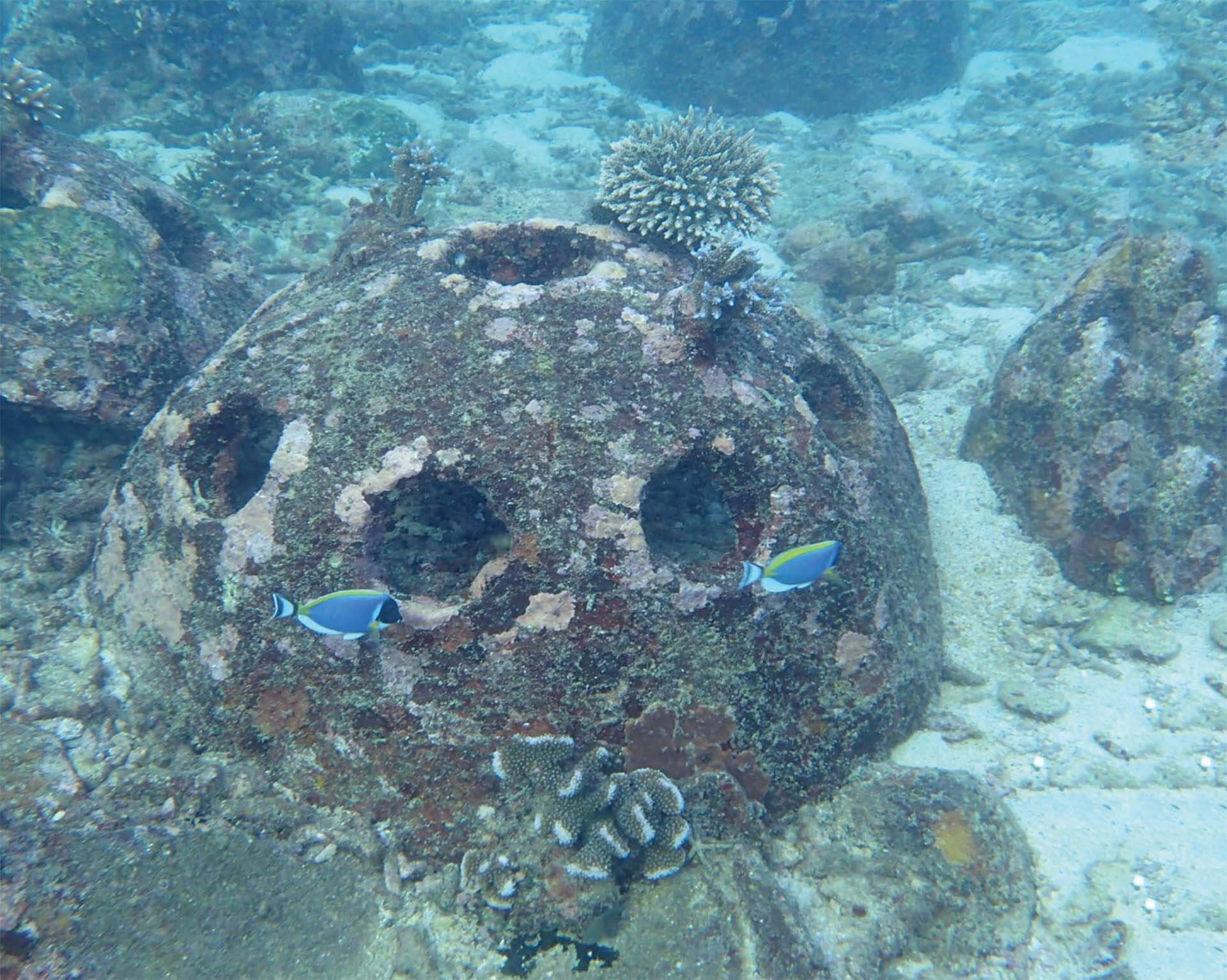
In 2012, Tokyo Cement together with a consortium of partners started deploying reef balls; hollow structures made using recycled concrete waste from our Ready-mixed Concrete plants, as substrate for marine life and new corals to grow along the Eastern coastline. From 2017 the project focused on scientific research to support the conservation efforts.
As part of the initiative our project partner Wildlife Research and Conservation Trust (WRCT) set up a coral nursery in Cod Bay, China Bay, where nurseries of coral nubbins of different types are planted and nurtured under supervised conditions, until they are planted on the existing reef layer or on reef balls.
As the project evolved with deeper involvement of Tokyo Cement Group, our project partner Blue Resources Trust (BRT) started conducting long-term monitoring studies of the Kayankerni Reef in Passikudah, with support from the Sri Lanka Navy Eastern Command. This included monitoring the growth rate of corals planted on the reef balls, to identify fast-growing varieties and the resilience of other species to adapt to different environmental conditions.
From 2017 onwards, through a series of lectures and practical sessions, Navy divers were introduced to globally standardised underwater survey methods to document fish, coral, and invertebrate population. The focus therein was on reef ecology and current threats to coral reefs, while also providing a general overview on marine conservation.
A select team of Navy divers were trained on reef ball planting and coral nursery establishment and maintenance. These Navy divers are now given opportunity to test reef ball planting on their own, in coastal navy camps in Jaffna, Trincomalee, Galle and Kalpitiya with collaborative support from Tokyo Cement program partners. We continue to supply reef balls for these conservation efforts by the Navy to broad base the project.
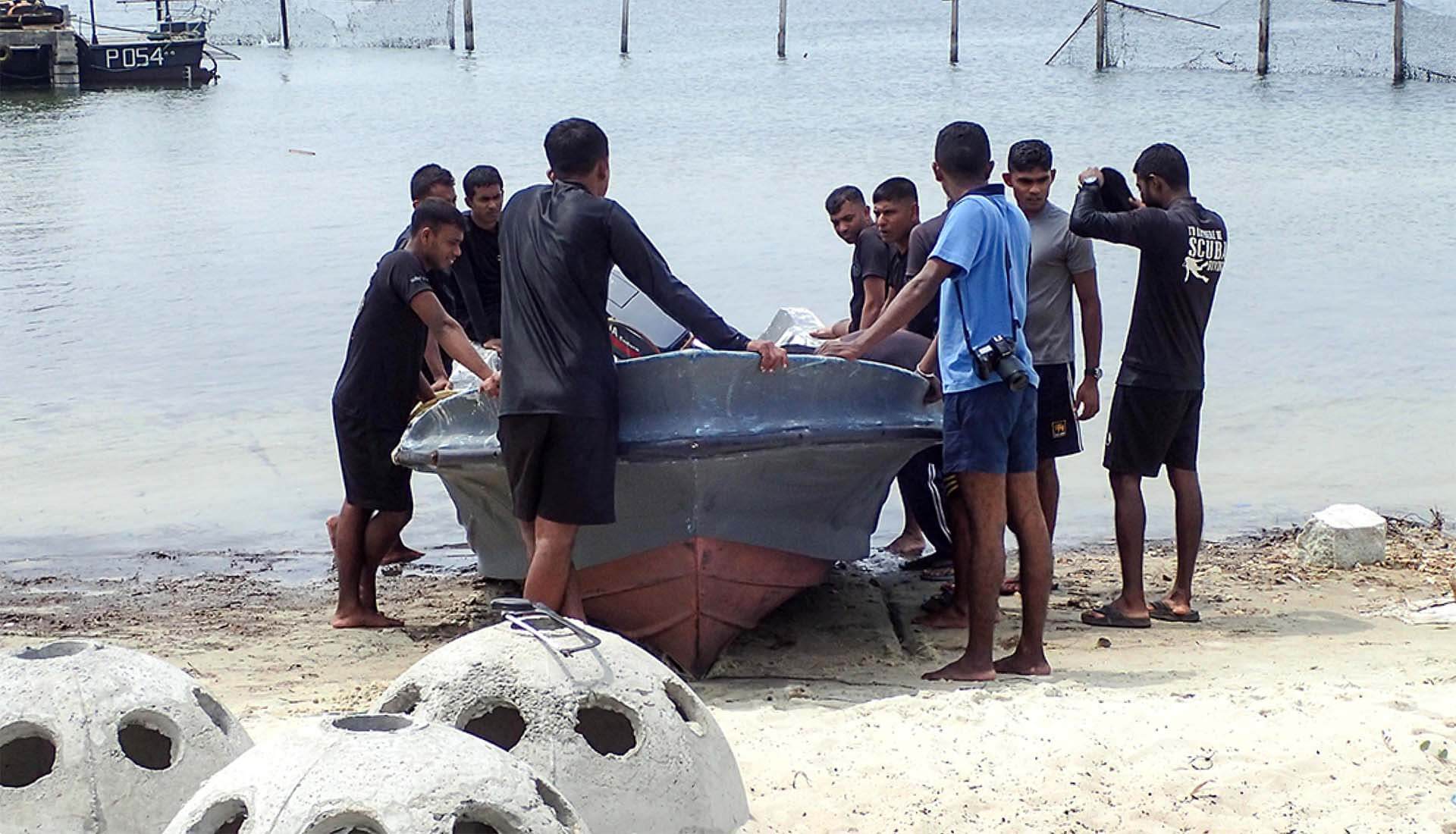
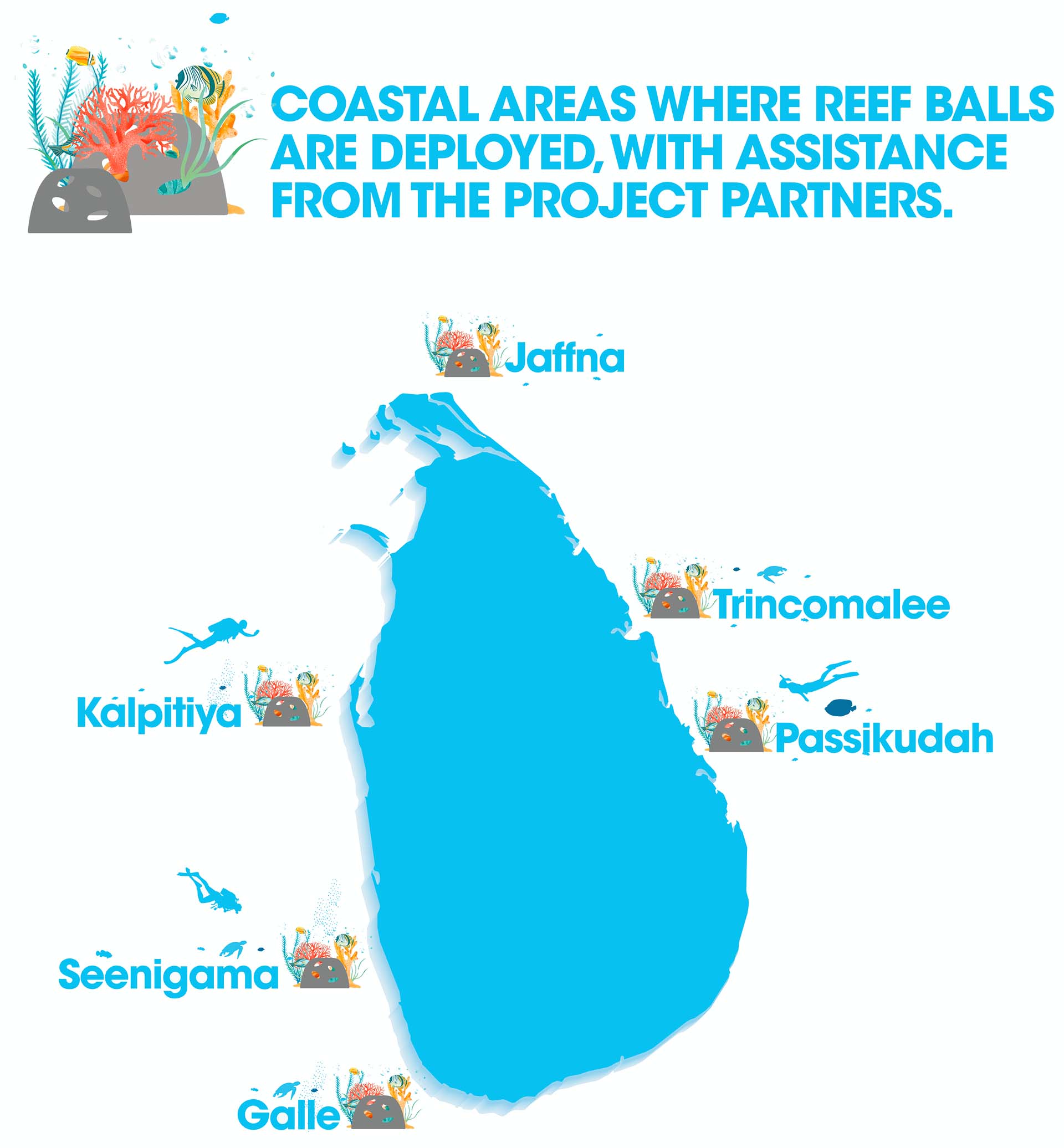
Research & Education
Our Partners




